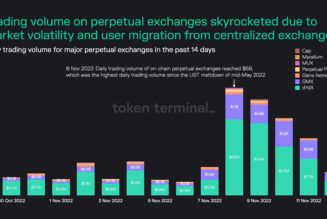
Manchin has repeatedly warned that another round of what he has called “a historic expansion of social programs” like Build Back Better — a sweeping plan to address issues ranging from child care to climate change — will only feed inflation.
Biden himself pointed to the report as showing “a meaningful reduction in headline inflation over last month,” citing a decline in energy prices and some food costs. He also stressed that the U.S. has “one of the fastest growing economies” in the world and partly credited his earlier spending initiatives for that.
“We are making progress in slowing the rate of price increases,” he said in a statement. “At the same time, this report underscores that we still have more work to do, with price increases still too high and squeezing family budgets.”
Economists expect inflation to begin easing later this year, not least because the Fed has quickly pivoted toward the prospect of as many as three interest rate hikes, possibly starting as early as March. Some have also defended Build Back Better as a potential solution to the inflation problem, since it could help more Americans return to the workforce. But as Biden pushes his social spending bill and eyes Democratic prospects in the 2022 midterm elections, the news doesn’t make his job any easier.
“The longer we see headline inflation numbers like today the more it becomes entrenched in the minds of voters that Democrats and the Biden administration are to blame,” said Tony Fratto, founder of communications firm Hamilton Place Strategies and a top Treasury official in President George W. Bush’s administration.
“The hardest thing to do in politics — and the most powerful — is to define your opponent,” added Fratto, who also served as a Bush spokesperson. “Inflation measures are making that goal a lot easier for Republicans.”
Powell on Tuesday warned lawmakers that not getting inflation under control in the near term could require more aggressive action later that would run the risk of tipping the economy into recession. He also sounded pessimistic about the supply chain problems that have helped drive inflation, saying they “have been very persistent and very durable.” Adding, “We’re not really seeing a lot of progress.”
It’s been a surprisingly rapid about-face for the Fed chief, who just a few months ago was highlighting the need to allow the labor market to heal further, given that millions of workers who were employed before the pandemic remain on the sidelines. That was an argument echoed by the White House at the time.
This week, he was much more optimistic about the job market, pointing to signs that workers right now have lots of leverage over where they work and how much money they make.
“We’re very rapidly approaching or at maximum employment,” Powell said at his confirmation hearing for a new term as Biden’s nominee for Fed chair.
White House economic adviser Brian Deese underscored that aspect of the economy in remarks on MSNBC following Wednesday’s inflation reading. He cited the uptick in workers voluntarily quitting their jobs.
“The facts are that wages are growing for people at the bottom, jobs are plentiful and people have opportunities in this labor market,” he said. “That’s a positive thing.”
Still, Deese acknowledged that price increases are “too high” and said the administration was doing what it could to address that without choking off other positive trends.
“The core answer is, we need to build the productive capacity of this economy,” he said. “We need more growth. We need more capacity in this economy.”
On a month-to-month basis, prices rose 0.5 percent in December, which was lower than the 0.8 percent measure in November. Much of the inflation reading is still focused on used cars, fueled by a semiconductor shortage that has made production of new cars more difficult. Rent and food — two of the items that ordinary Americans care the most about — also fed the December reading, although energy prices fell slightly.
One big question is the extent to which the Omicron variant might dent growth, though the Fed expects that the need to combat inflation will be higher. Diane Swonk, chief economist at Grant Thornton, warned that this is the first variant that the economy will experience without an added boost of congressional aid.
“It’s been stunning to see how rapidly the Fed has pivoted from patience to panicking,” said Swonk. “The risk of a misstep right now is pretty high.”
Nick Niedzwiadek contributed to this report.
[flexi-common-toolbar] [flexi-form class=”flexi_form_style” title=”Submit to Flexi” name=”my_form” ajax=”true”][flexi-form-tag type=”post_title” class=”fl-input” title=”Title” value=”” required=”true”][flexi-form-tag type=”category” title=”Select category”][flexi-form-tag type=”tag” title=”Insert tag”][flexi-form-tag type=”article” class=”fl-textarea” title=”Description” ][flexi-form-tag type=”file” title=”Select file” required=”true”][flexi-form-tag type=”submit” name=”submit” value=”Submit Now”] [/flexi-form]









